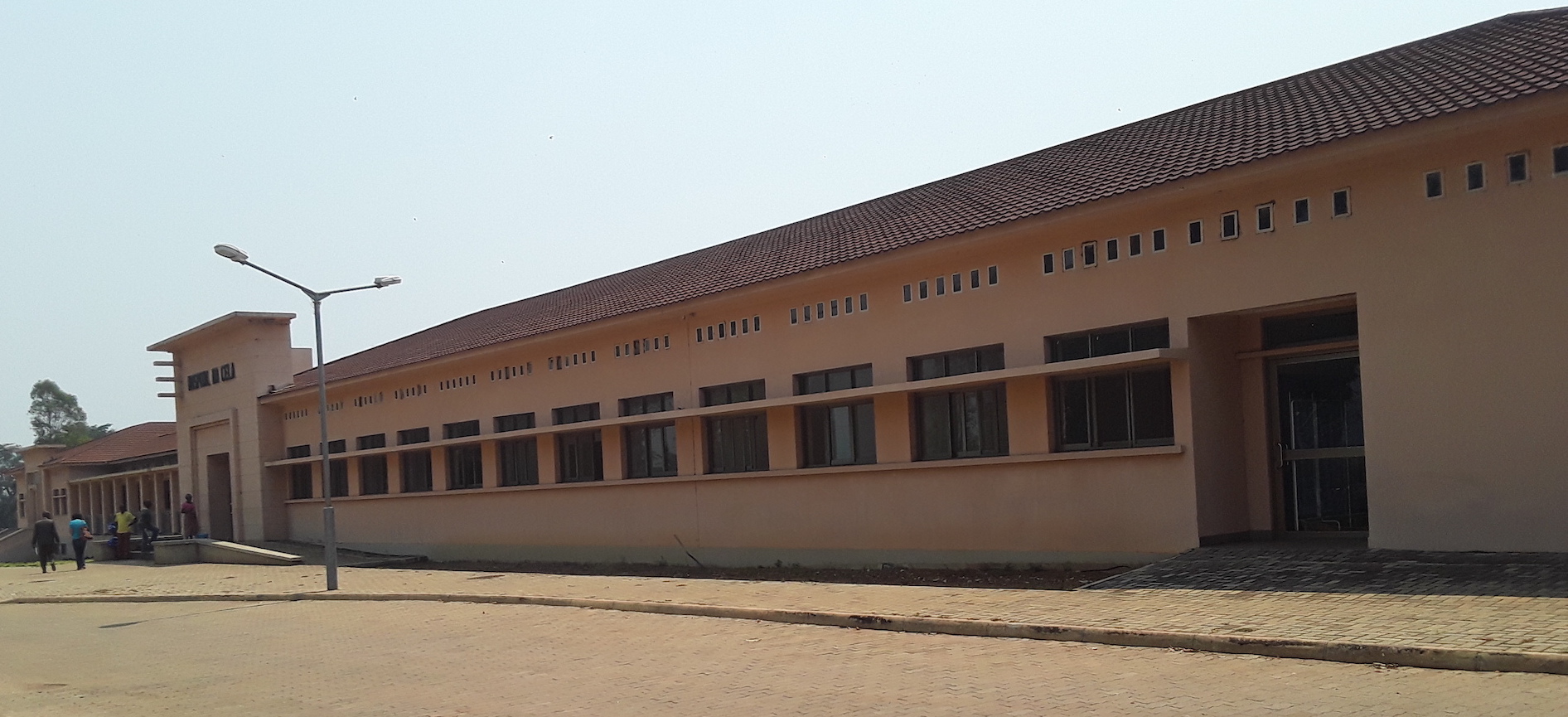Cela, a municipality with 246.911 inhabitants located in Kwanza Sul Province (center of Angola) had a reference hospital from colonial period, that needed profound renovation to meet the needs of its’ growing population. The response came through Green Innovations’ investment in Promed that submitted the Hospital to a complete rehabilitation that comprised structure works, enlargement, equipment supply and installation.
Thanks to these activities, since 2014, Cela Hospital tripled the number of patients seen in external consultations and reached the attendance capacity to 150 people per day. The enlargement of the internment capacity from 80 to 200 beds duplicated the average of patients interned in the several medical services.
The Hospital gained four new operation rooms and three new labour delivery rooms, as well as an infirmary for infectious-contagious illnesses, an oxygen production centre and a sewage treatment station, among other facilities. Moreover, the rehabilitation and equipment of the radiology and laboratory broadened the diagnostic capabilities by offering: X-ray, hematology and serology clinical analysis, pregnancy tests, vidal, bacilloscopy, urinalysis and feces.
These improvements allowed the Hospital to provide adequate treatment for the main illnesses that affect the local population: malaria, acute diarrheal diseases, typhoid, acute respiratory diseases, hypertension, diabetes and HIV. With this renewed health care unit, the local population has no longer to search for treatment outside the municipality or in the neighbour province, unless in very serious cases.
Cela Hospital current impact also contributes to meet Angolan targets of the Sustainable Development Goals regarding mother and infants health, such as reduction of maternal and infants under five years old mortality rates. From 148 HIV positive pregnant women hospitalized in the first semester this year, all received PMTCT treatment and managed to prevent vertical transmission.
Considering the intended impact in its Theory of Change is the improvement of the response capacity of the Hospital in health services to surrounding communities’ demands, the service evaluation by Cela Hospital patients demonstrated that 85% trusted the staff and the health care means. The deficiencies referred by 46% of the respondents related to shortage of medicines and lack of medical specialists. The graph below summarizes patients’opinions.
Today, the hospital has 119 technical staff members, amongst doctors, nurses and diagnostic technicians. From the staff perspective, Cela Hospital also enhanced their professional pride and self-esteem. The Administrative Director, Mr. Policarpo (pic) admitted that: “More than the comfort of working in a better physical structure, I believe that this intervention enhanced our professional dignity”.
